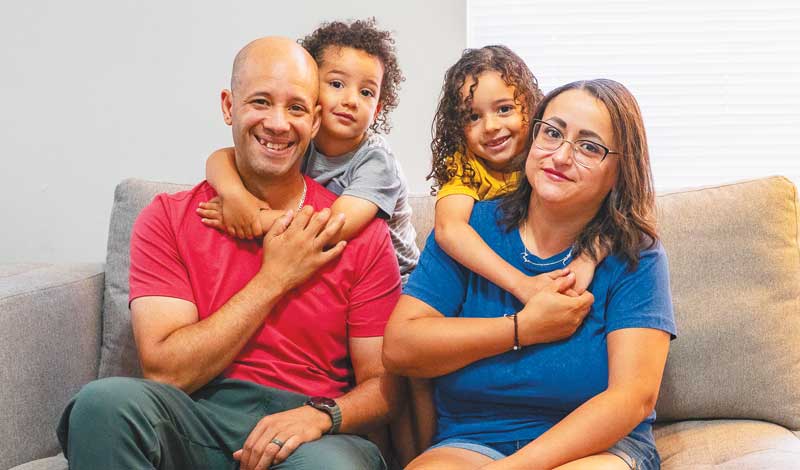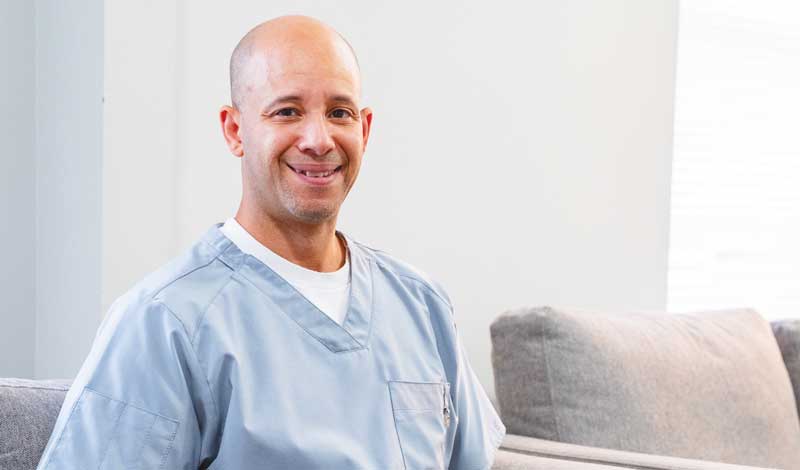by Kente Johnson-Taylor
Chicago
Stories of brotherhood are too many to count, but one that comes to mind is of a drive made halfway across the country. When three brothers in faith heard from my mother that I was head over heals for a woman in Philly and out there flunking my freshman year of college, they piled into a car and drove east. They pulled up to my apartment and, compassionately, checked me on my behavior—for worrying my mom and flunking school for romance. Satisfied that I wasn’t in any kind of danger, they dapped me up, got back in the car and drove west.
I watched them go and then just stood there awhile, thinking. My apartment, I realized, wasn’t some pit stop on a trip they’d already planned. It was the trip. Having seen me, they were now on their way back home to Chicago, a 13-hour drive.
There are too many examples of this kind to count—of friends in faith who brought me back to reality, when reality was the hardest thing to face.
In 2009, at the cusp of 30, I stood in the wreckage of all my personal dreams. Fired from my job, dumped by my girlfriend, parted with my bandmates, I arrived to a summer youth training course at Soka University of America feeling that I had nothing to stand on, nothing to show. None of this seemed to matter to anyone at the training course. There, among friends, I renewed my vow to fight for human dignity, for kosen-rufu with Ikeda Sensei. Soon after, I discovered a career that spoke to that vow, that part of me I was getting back in touch with. I returned to Chicago for school, finishing my prerequisites and entering a nursing program there in 2015. All the while, I worked full-time at a restaurant on the north side, with a growing sense of purpose.
The restaurant was managed in sections, each by a team of three. I was paired up with another waiter, Laura, and we ran our section like clockwork. By 2016, management had made us the training ground for new hires, cycling them in to get them up to speed.
It was unmistakable, then, when Laura became distracted. She was nearing 30, the same age I’d been when I’d reached a point of crisis. She knew I was Buddhist and one day told me what was on her mind: Her close friend had been killed by a drunk driver. I put her in touch with her local SGI community, and in so doing reconnected myself, taking on leadership for the first time in many years. From there, our relationship deepened, and we found we worked well together, not just in the restaurant but outside it too.

Our son, Bassam, was born in the summer of 2019, happy and healthy. We had a brief moment of family calm before the pandemic. Suddenly, it was all hands on deck. Though I’d been until then an entry-level, observational nurse, I cut my teeth in a once-in-a-century pandemic, watching as my fellow nurses, many far more seasoned than me, pushed themselves to the brink of exhaustion and quit.
At a time when there were no certain cures, I had to dig deep within my life each day to find what it was, beyond a pill and limited expertise, that I could give to the people around me. What kept me going, when so many others burned out, was the belief, engraved in me, that the greatest gift that can be given is a sense of dignity.
Before, during and after the pandemic, many of my patients were people who’d forgotten what dignity felt like. My strength, I realized, above any technical expertise, is an ability to look another human being in the eye and stand with them in their suffering, with the conviction that they are worthy of respect.
A crucial moment came for me in the fall of 2021, when we were expecting our second son. We’d been house hunting since January to no avail and money was tight. I listened and pondered for months as a steady stream of more experienced, higher paid contract nurses praised my composure and competence.
As I chanted, I thought about my sons—one here and one on the way—and knew there were things I could not convey with words. To live with courage, for instance, was something I’d need to do myself if I hoped that they would too.
As I chanted and read Sensei’s guidance again and again, I summoned the courage to step out from the security of my staff nursing position and into the dynamic realm of contract nursing. I determined that I would double my salary while working the same hours or less and made in that very moment a determination to support our SGI movement more than ever before, setting concrete, ambitious goals in faith.
Rahim was born the following year. Around the same time, I connected with the new young men’s leader of our district. He’d just finished his undergrad and come back home to Chicago. I could tell he felt lost, as I had at his age. I gained his trust by just chanting for his happiness and showing up for him week after week, conveying what I’d been told at his age.
In February 2023, ahead of our usual get-together, I learned he was in the ICU for an accidental overdose. I went with several others and read Nichiren Daishonin’s letter “The Treasure Tower” together, replacing the name of its recipient with his own, to help him internalize its message: that his life was more valuable than he could fathom (see The Writings of Nichiren Daishonin, vol. 1, p. 299).
I could tell that he did not fully believe it himself—it wasn’t clear in those first few days whether he’d survive. But I told him with the conviction that others had impressed upon me: It doesn’t matter what the situation looks like right now. You wouldn’t be here if you didn’t have a mission. You’re going to be OK.
His immediate mission, it turned out, was to make a full recovery and find full-time work to pay his way through a master of fine arts program in screenwriting at DePaul University. Mine was to show proof alongside him. That year, as I’d vowed to do, I doubled my salary for the sake of kosen-rufu.
I’ve been given too many stories, too many brothers to count. I’ve been helped back to my feet too many times, by too many hands for me to fold when the young men need me now. My brothers in faith believed in me so I could believe in myself. As a father, a husband, a friend and a leader—as a disciple of Sensei—it’s up to me to be that rock. So that the youth today have as much a chance as I did.
You are reading {{ meterCount }} of {{ meterMax }} free premium articles

